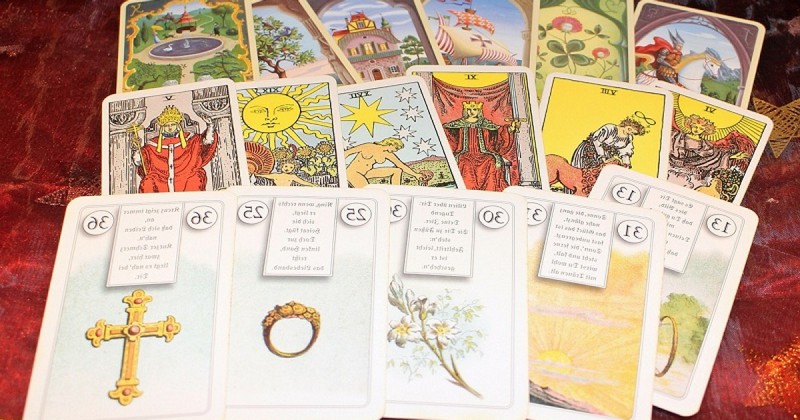The Forer Effect: why do some fortune-telling tricks work?

The Forer Effect shows us why horoscope predictions can sound so accurate.
Many people are surprised that, despite their lack of scientific basis, the various fortune-telling systems that claim to describe our lives can come very close to reality.
How is it that some divination tricks seem to work?
How can it be that, from a seemingly arbitrary criterion such as a spread of cards, one's own characteristics can be portrayed? Where is the trick? While the various esoteric disciplines cannot offer any explanation for this that is subject to falsifiability of results, psychology has provided a construct based on experimentation that clarifies this phenomenon. That construct is what we know today as the Forer Effect.
An experiment that showed the sham of fortune telling
In 1948, the American psychologist Bertram R. Forer gave a personality test to his students. The teacher then gave each of the students an index card with the results of the personality analysis. After this, he asked the students to rate from 0 to 5 how accurately they thought the personality analysis portrayed them, with 0 being "very poor" and 5 being "excellent". The average score was 4,26.
The students' surprise must have been great when Forer revealed to them that, in fact, they had all been given the same score. The individualized personality analysis was no such thing and, in fact, the text that was given to the students was nothing more than a single compilation of sentences taken from horoscopes:
"You have a need for other people to appreciate and admire you, and yet you are critical of yourself. Although your personality has some weaknesses, you are generally able to compensate for them. You have considerable unused capacity that you have not tapped. Although disciplined and self-controlled outwardly, you tend to be apprehensive and insecure inwardly. You sometimes have serious doubts about whether you have done the right thing or made the right decisions. You prefer a certain amount of change and variety and feel disappointed when surrounded by restrictions and limitations. You are also proud of being an independent thinker; and of not accepting the claims of others without sufficient evidence. But you find it unwise to be too outspoken in revealing yourself to others. Sometimes you are outgoing, affable, and sociable, while at other times you are introverted, cautious, and reserved. Some of your aspirations tend to be quite unrealistic."
Shortcuts of the mind
Bottom line, The Forer Effect is nothing more than the manifestation of a form of cognitive bias.. It shows the propensity to accept as original and proper descriptions that in reality are sufficiently ambiguous and generalistic to be predicated of virtually anyone. Thanks to this tendency, Forer managed to pass off as original a "personality reading" that is characterized precisely by its lack of precision in speaking about the attributes a person may have, but which nonetheless surprised the students by its faithful reflection of reality.
In addition, this experiment has been repeated many more times, obtaining very similar results (the people evaluated do not usually score less than 4 out of 5 for the accuracy of the analysis). Thanks to these experiments we know that there are three factors that, when present, make the Forer effect more accentuated:
-
When, apparently, the analysis is customized.
-
When the analysis shows especially positive aspects that the person being evaluated values as positive.
-
When the person being evaluated gives authority to the evaluator.
Interpretation of the Forer effect
The explanation of why this happens is usually related to desirability and expectations. On the one hand, there is a tendency to give greater credibility to satisfactory explanations of reality, as opposed to others that do not satisfy us as much. In addition, the expectations of obtaining a personality analysis create a propensity to accept the results.
On the other hand, we make our own an explanation that makes sense of our experiences, and from that position we accept information that fits well with that explanation while denying or ignoring information that contradicts it: this is known as the confirmation bias.
Knowing how the Forer effect works, it is easy to imagine why in some circles there is acceptance of some divination disciplines. divination such as astrology. Its esoteric nature means that apparently only a few people know how divination works, giving the diviner an authoritative role.
The ambiguity is a card that is always played, because the person being evaluated will tend to make sense of vague but broad and all-encompassing explanations: this is especially clear in the case of horoscopes. In the case of real-time divination sessions, ambiguous statements at the beginning allow us to gather information from the person being evaluated, and it is therefore possible to dare to be more specific as the session progresses.
(Updated at Apr 13 / 2024)